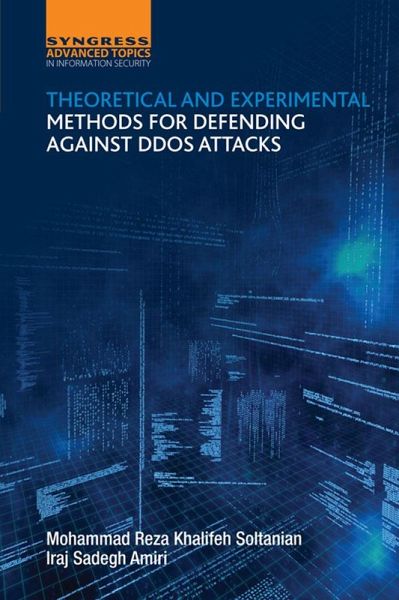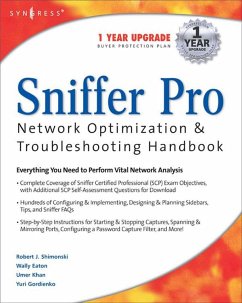
Theoretical and Experimental Methods for Defending Against DDoS Attacks (eBook, ePUB)
Versandkostenfrei!
Sofort per Download lieferbar
37,95 €
inkl. MwSt.
Weitere Ausgaben:

PAYBACK Punkte
19 °P sammeln!
Denial of Service (DoS) attacks are a form of attack that seeks to make a network resource unavailable due to overloading the resource or machine with an overwhelming number of packets, thereby crashing or severely slowing the performance of the resource. Distributed Denial of Service (DDoS) is a large scale DoS attack which is distributed in the Internet. Every computer which has access to the Internet can behave as an attacker. Typically bandwidth depletion can be categorized as either a flood or an amplification attack. Flood attacks can be done by generating ICMP packets or UDP packets in ...
Denial of Service (DoS) attacks are a form of attack that seeks to make a network resource unavailable due to overloading the resource or machine with an overwhelming number of packets, thereby crashing or severely slowing the performance of the resource. Distributed Denial of Service (DDoS) is a large scale DoS attack which is distributed in the Internet. Every computer which has access to the Internet can behave as an attacker. Typically bandwidth depletion can be categorized as either a flood or an amplification attack. Flood attacks can be done by generating ICMP packets or UDP packets in which it can utilize stationary or random variable ports. Smurf and Fraggle attacks are used for amplification attacks. DDoS Smurf attacks are an example of an amplification attack where the attacker sends packets to a network amplifier with the return address spoofed to the victim's IP address. This book presents new research and methodologies along with a proposed algorithm for prevention of DoS attacks that has been written based on cryptographic concepts such as birthday attacks to estimate the rate of attacks generated and passed along the routers. Consequently, attackers would be identified and prohibited from sending spam traffic to the server which can cause DDoS attacks. Due to the prevalence of DoS attacks, there has been a lot of research conducted on how to detect them and prevent them. The authors of this short format title provide their research results on providing an effective solution to DoS attacks, including introduction of the new algorithm that can be implemented in order to deny DoS attacks. - A comprehensive study on the basics of network security - Provides a wide revision on client puzzle theory - An experimental model to mitigate distributed denial of service (DDoS) attacks
Dieser Download kann aus rechtlichen Gründen nur mit Rechnungsadresse in A, B, BG, CY, CZ, D, DK, EW, E, FIN, F, GR, HR, H, IRL, I, LT, L, LR, M, NL, PL, P, R, S, SLO, SK ausgeliefert werden.













